100 points, 40 rebounds, 18 blocks! Wembanyama's first three games perfectly embody the Alien: Could he sweep both MVP and DPOY in a single season?
Alien? Wembanyama’s performance in the first three games of the new season seems to fully justify this nickname. He averages 33.3 points, 13.3 rebounds, 2.3 assists, 1.7 steals, and 6 blocks per game, with a shooting percentage of 56.9%. Data shows he is the first player in NBA history to record at least 100 points and 15 blocks in the first three games of a season. On both offense and defense, Wembanyama has delivered a dominant performance.
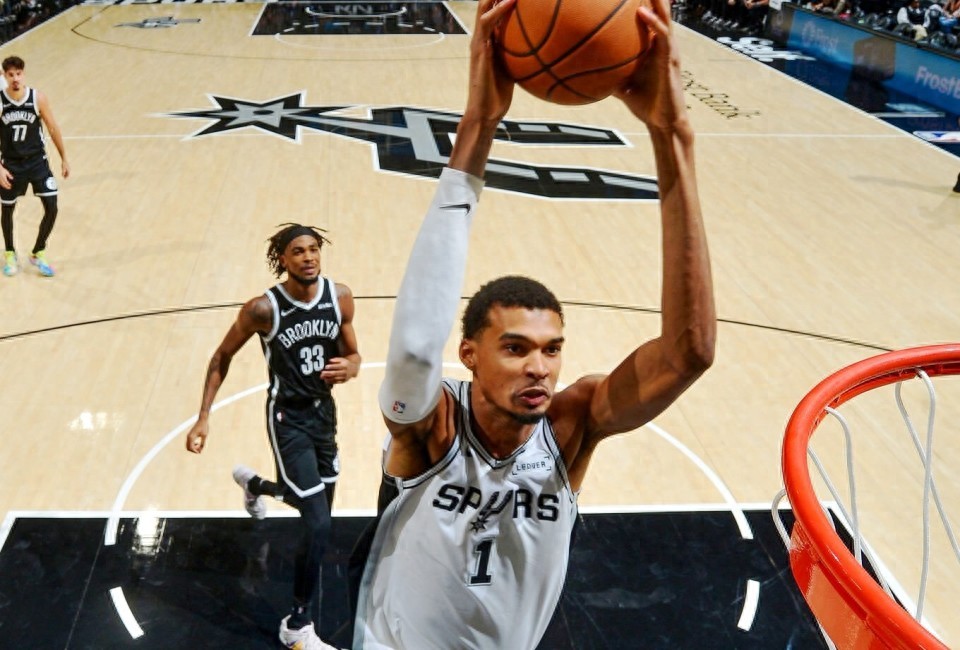
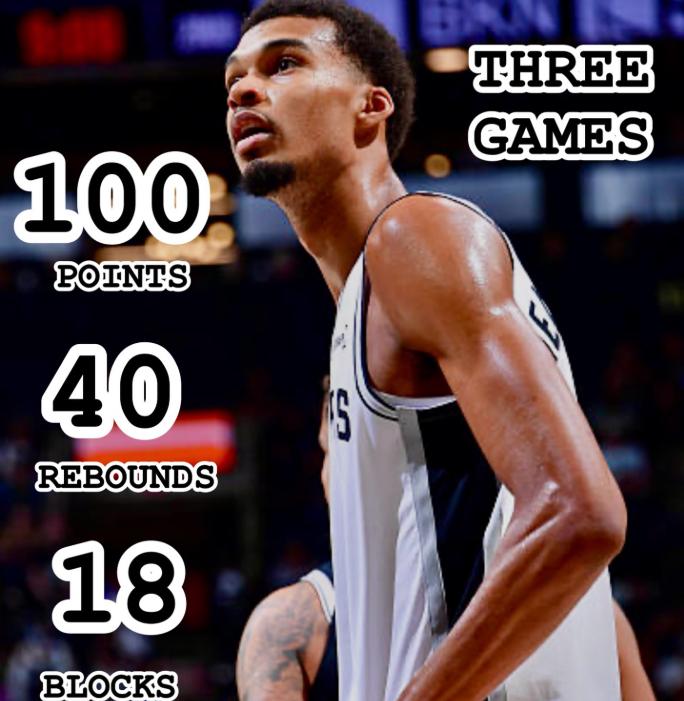
Is Wembanyama truly a contender for MVP?
Let’s look at some data from Polymarket: last month, Wembanyama’s chances of winning MVP were at 4%, but after three games, that figure has surged to 24%. His real shot at MVP isn’t just because of his incredible individual stats, but also due to the expected improvement in the Spurs’ record. Currently, the Spurs are 3-0, leading the Western Conference. If they maintain this momentum, Wembanyama’s MVP candidacy will be very strong.
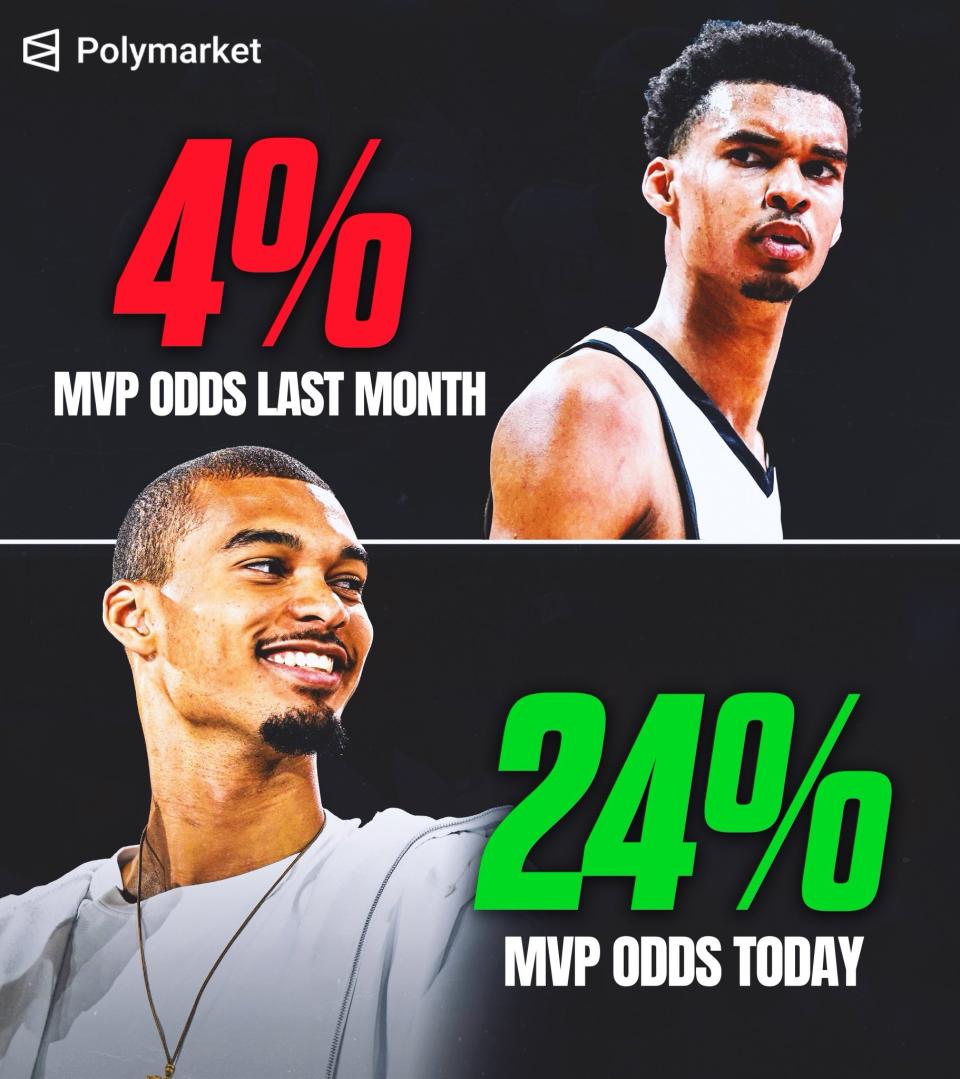
Of course, meeting the minimum games played requirement is fundamental. Only if Wembanyama appears in at least 65 games will he qualify for the regular season MVP award. Alexander is expected to be the top rival who could prevent Wembanyama from becoming the youngest MVP in NBA history (a title currently held by Derrick Rose).
US media also highlight that in the first three games, Wembanyama is averaging 10 free throw attempts per game, compared to just 4.1 last season. Over the offseason, he added muscle and weight, allowing him to dominate more with strength on offense, while also learning how opponents defend him. Undoubtedly, he poses a greater threat in the paint. The increase in free throw attempts and improved efficiency have pushed his scoring average above 30 points. His shooting percentage this season is already 56.9%, up from 47.6% last year.
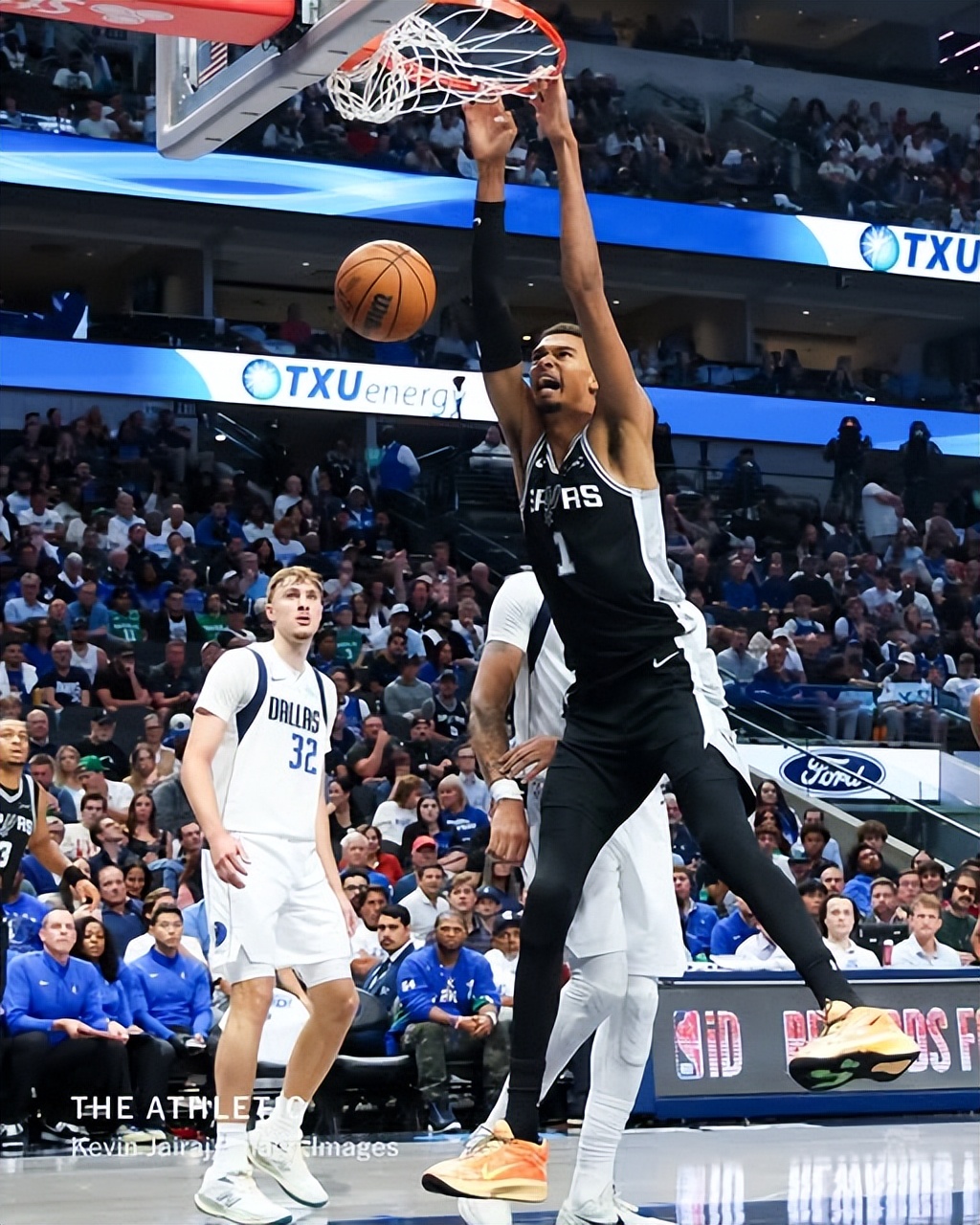
This kind of performance is exactly the perfect formula for an MVP season—and it very well might be just the beginning of many MVP-caliber campaigns for him.
Defensive standout aiming for DPOY
Besides MVP, the Defensive Player of the Year (DPOY) award is also one of Wembanyama’s goals.
After three games, Wembanyama has already recorded 18 blocks. How impressive is this? Among the other 29 teams in the league, only four teams have a total block count higher than Wembanyama’s individual number so far: the Pistons (26), Grizzlies (20), Celtics (19), and Clippers (19).
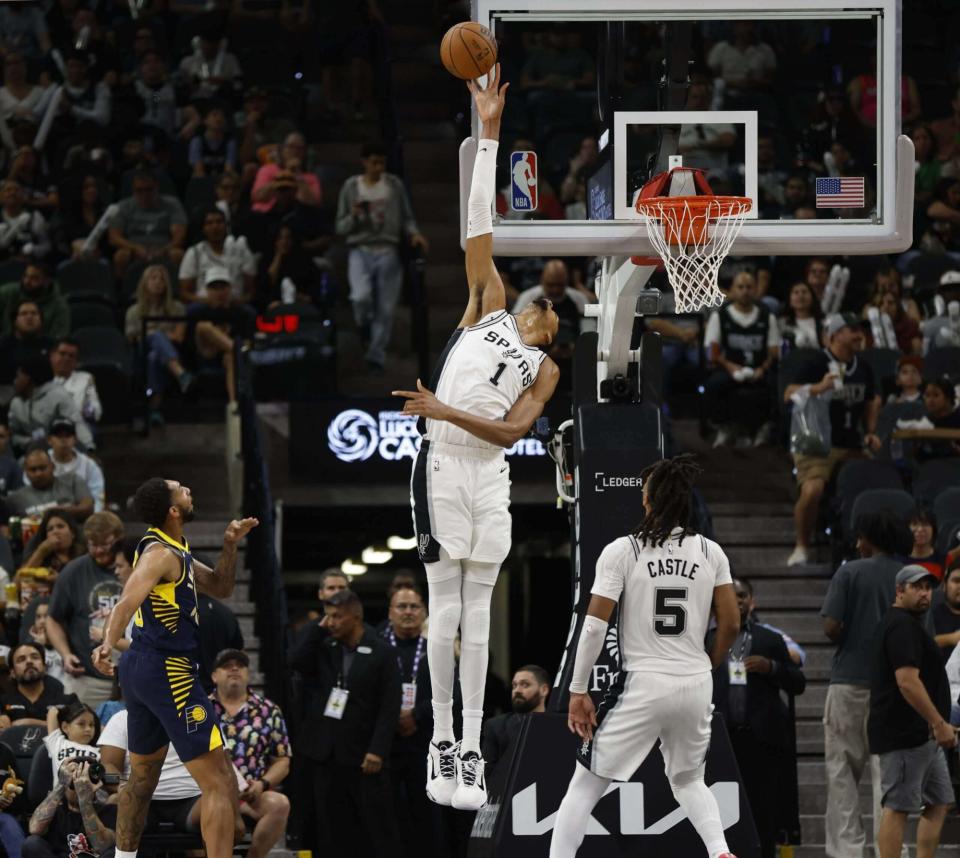
Wembanyama’s rim protection is nothing short of insane. What’s even more remarkable is that this evolved version of him is no longer just a solo defensive show; he has elevated the entire Spurs' defensive system. Last season, the Spurs ranked 25th in defensive efficiency (116.3 points allowed per 100 possessions), but after the first three games this season, their defensive efficiency (104.7 points allowed per 100 possessions) ranks 2nd in the league. Although it’s a small sample size, the improvement is clear.
Modern NBA defense increasingly values "system impact," and Wembanyama has become the absolute core of the Spurs’ defense. His presence allows Spurs perimeter players to aggressively gamble for steals and block passing lanes, knowing there’s a reliable last line of defense behind them. Led by Wembanyama, the Spurs dominate the boards (56.2% rebound rate, 2nd in the league), greatly limiting opponents’ second-chance opportunities. This "one-man defensive anchor" trait closely resembles the performances of past DPOY winners like Ben Wallace and Dikembe Mutombo.
Sweeping MVP and DPOY in one season?
How difficult is it to win both MVP and DPOY in a single season? In NBA history, only three players have achieved this feat: Michael Jordan in 1987-88, Hakeem Olajuwon in 1993-94, and Giannis Antetokounmpo in 2019-20.

The first to accomplish this was Michael Jordan in the 1987-88 season. That year, Jordan averaged 35 points, 5.5 rebounds, 5.9 assists, 3.2 steals, and 1.6 blocks per game. He led the league in scoring and steals, dominating both ends of the floor, and was the epitome of two-way excellence in that era.
Hakeem Olajuwon also unlocked this great achievement in the 1993-94 season. That year, he averaged 27.3 points, 11.9 rebounds, 3.7 assists, 1.6 steals, and 3.7 blocks. As the center anchoring the Rockets’ defense, Olajuwon became a classic example of a dominant big man excelling on both offense and defense.
Next is Giannis Antetokounmpo in the 2019-20 season. He averaged 29.5 points, 13.6 rebounds, 5.6 assists, 1.0 steal, and 1.0 block. Although his steals and blocks were not as eye-catching as his predecessors’, he led the Bucks to become one of the league’s top defensive teams.
Will Wembanyama be the next star to claim both MVP and DPOY in a single season? Let’s wait and see.


Wonderfulshortvideo
This Wemby and Ant interaction 🎙️


Dylan Harper got to interview players and get a behind-the-scenes look at NBA All-Star Weekend! 🎤 ⭐️


The @Google Search Bar was 🔥 at NBA Crossover during NBA All-Star Weekend. Fans shot hoops, interacted with challenges, and brought the energy all day @Google


Welcome to 'The Winning Formula' series where we break down winning combinations in the NBA all season long presented by Castrol.


Tacko showing Glo how to throw an alley-oop 👏🚨


The biggest hoops stars from around the globe 🌎








 Links
Links
 Contact
Contact
 App
App


